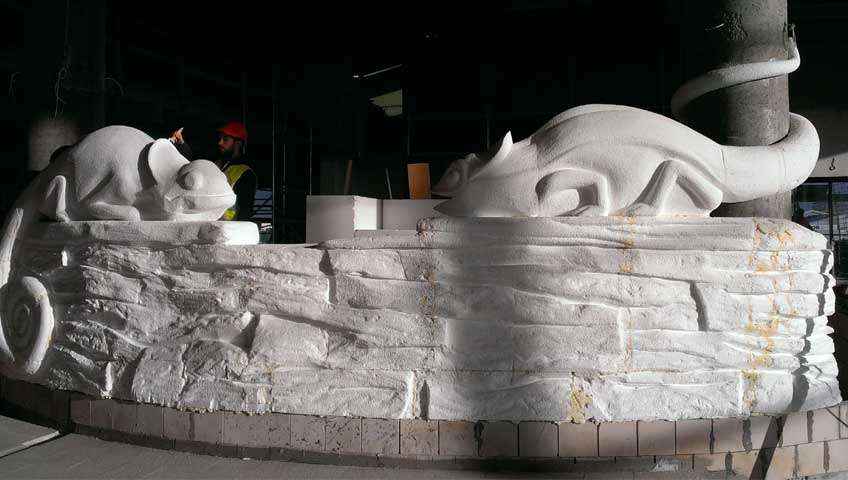Despite appearances, this is a very important question in the category of how to make Artificial rocks, to which there is no clear answer. As such, rock imitations are for the viewer only what is seen on the outside. However, the issue of preparing a suitable foundation that will hold rock decorations, waterfalls or ceilings of artificial caves is extremely important.
During the preparation of the project, many factors must be taken into account, which at a later stage affect the weather resistance, wear and tear and safety of use.
Which rock decoration design is best?
As I mentioned, the most important thing is to determine where and under what conditions the imitation rocks will be exploited. Most often, we build the rocks on truss structures and a lightweight polystyrene foundation. In certain situations, we also perform masonry substructures. Most often, where we care about high durability for various types of loads. As you can see, rock substructure can be quite diverse, and it is important to know where a particular type works best.
Can any substructure be used for artificial rocks everywhere?
Not every type of substructure is suitable in certain specific applications. For example, the biggest contraindication to the use of polystyrene foam, is the construction of artificial rocks in animal enclosures in zoos. Styrofoam provides an excellent habitat for rodents and ants, which can spread balls of Styrofoam throughout the enclosure. Styrofoam is toxic and this can lead to animal poisoning. In such cases, we always recommend using trusses, or masonry structures. It also allows us to increase the sheer strength of the artificial stone.
However, there are exceptions to this rule as well. It is not always possible to use trussed or masonry structures. In the case where it is not allowed to drill into the walls to support such a structure. In such situations, polystyrene substructures glued to the walls are used. It is then necessary to secure the structure in such a way as to minimize the risk of Styrofoam balls getting outside.
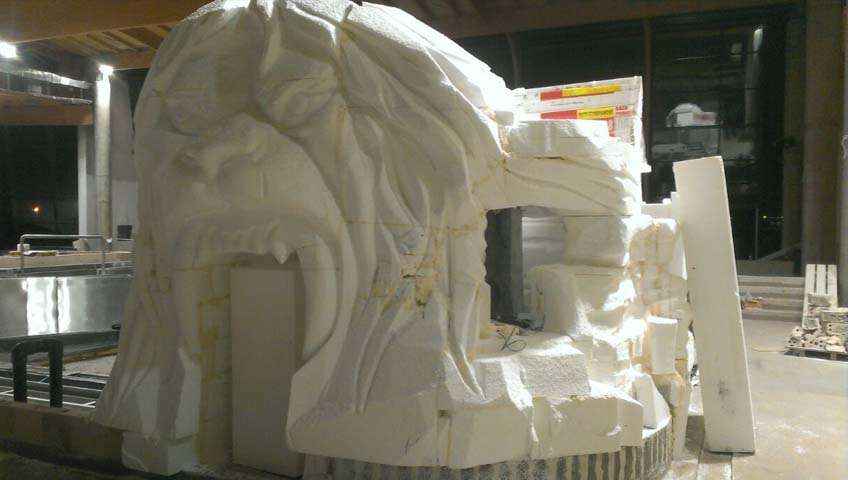
The foundation of the artificial grotto is made of polystyrene foam. By using polystyrene foam, we were able to achieve a more detailed reproduction of the details.

Visualization of the substructure of the artificial grotto built over the pool.
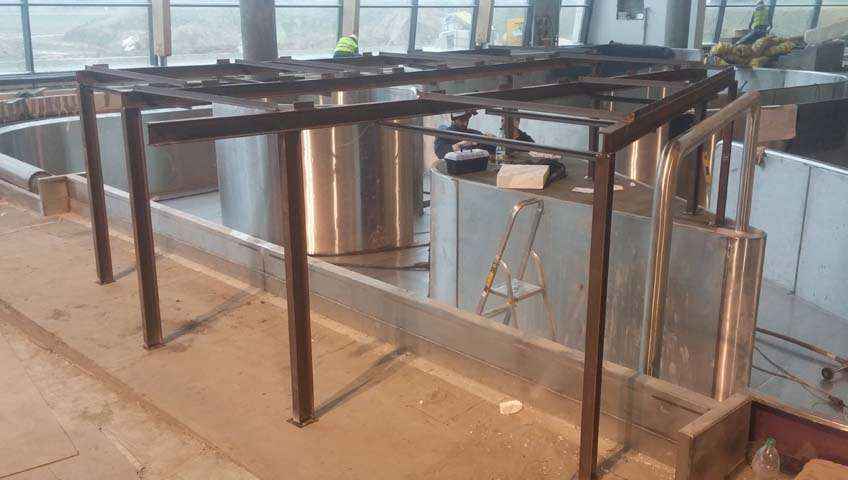
Steel structure supporting the ceiling of the artificial grotto built over the pool, along with the installation of the cascade.
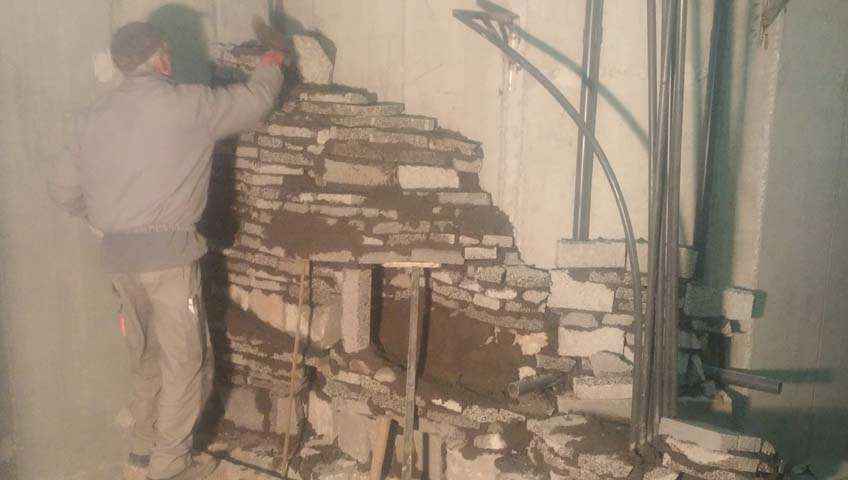
Construction of the masonry substructure of the artificial coral reef.
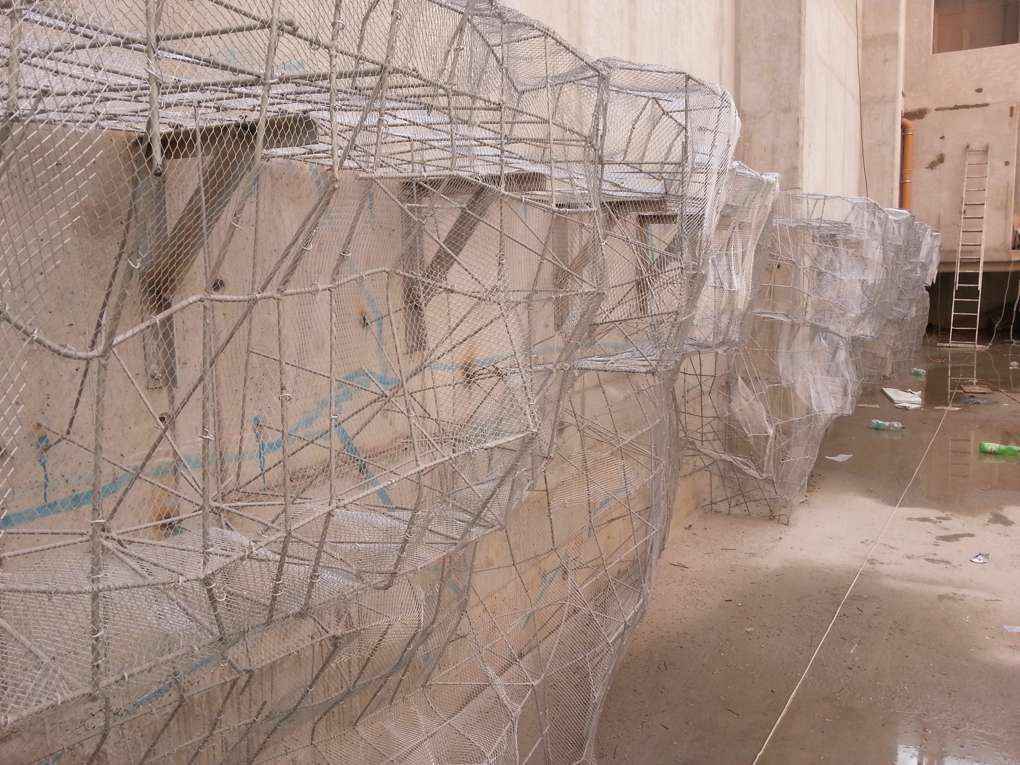
Lattice structures as a foundation for artificial rocks in an animal enclosure – the hippopotamus enclosure of the Afrykarium in Wroclaw.

